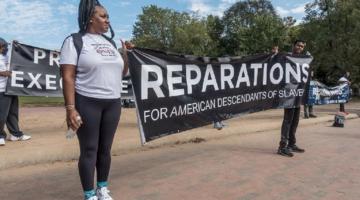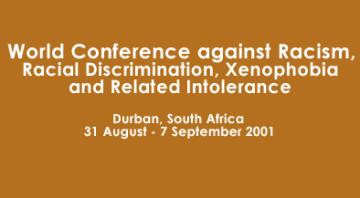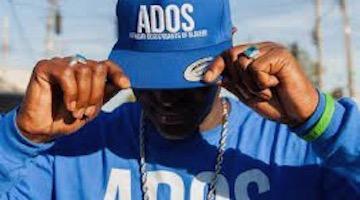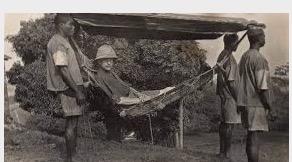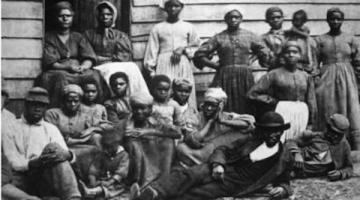The following essay was prepared for the 30th annual convention of NCOBRA, the National Coalition of Blacks for Reparations in America, held June 20 - 23 in Detroit.
2017 is the year that reparations definitively became a “mainstream” issue – meaning, serious candidates for president have been compelled to discuss the need to repair the historical and ongoing damage inflicted on Black people with the complicity of the United States government. Solid majorities of African Americans support reparations in principle: 64 percent, according to a Business Insider polltaken in March of this year, a statistically significant increase over Black pro-reparations sentiment measured in 2014 (59 percent, according to a YouGov survey), 2015 (52 percent, CNN) and 2016 (58 percent, Marist Poll). The Business Insider poll shows that 25 percent of whites, 37 percent of Asian Americans and 42 percent of Hispanics favor reparations – not enough to sway a national referendum on reparations, but almost certainly constituting a majority of the Democratic Party base, 25 percent of which is Black.
These numbers are extremely encouraging, in that they give national political legitimacy to the principle of reparations, which political scientist Michael Dawson writes “has been a central theme of Black political life,” and now seems destined to become a staple of the Democratic half of the U.S. electoral duopoly. With a companion bill in the Senate, introduced by New Jersey’s Cory Booker in April of this year, the H.R. 40 reparations study measure is now a “real” piece of legislation that can be lobbied in both chambers of Congress. In addition to Booker, presidential candidates Kamala Harris, Elizabeth Warren, Tulsi Gabbard and Julian Castro claim to favor reparations, although none of their proposals measure up to even a narrow semantic definition of the word. It is enough, for now, that these politicians acknowledge that a debt is owed to Black people. Sen. Bernie Sanders, who has a real chance of becoming president, says he will sign a reparations study bill if it comes across his desk. But he resists endorsing reparations, asking CNN’s Wolf Blitzer: “What does that mean? What do they mean? I don’t think anyone’s been very clear.”
“In addition to Booker, presidential candidates Kamala Harris, Elizabeth Warren, Tulsi Gabbard and Julian Castro claim to favor reparations.”
It’s an honest and sincere question – and one that can only be answered by Black people in the process of a Great Black Reparations Debate. Only Black people can put meat on the bare bones principle of reparations in America. As Frederick Douglass said, “the man who has suffered the wrong is the man to demand redress—the man STRUCK is the man to CRY OUT.”
Reparations – repair – must mean measures that are transformative, that lift Black people up from the bottom of the socio-economic-political barrel that the United States government and white society have methodically placed us in through centuries of criminal acts. The runaway slave who joined the Union Army and was part of the unit that captured his former master’s plantation was clear on what reparations meant to him. “Bottom rail on top this time, Massah.”
The United States was built on the foundation of Black people as the bottom rail -- and keeping them there. In an endemically racist society, we are the institutional definition of the bottom. The mission of genuine reparations must be to eliminate the “bottom” altogether – otherwise, a hostile white society will push Black people back into our “place,” once again.
Resources are important, and any reparations scheme that does not have a price tag in the many trillions is an insult to the living and the dead. According to one estimate, the Federal Reserve bank bailout amounted to $29 trillion – to save the criminals that caused the economic collapse! Redressing crimes against the Black people whose unpaid labor created America’s wealth is at least as large a project. But reparations is more than material resources; it is the power to use those resources for the betterment of one’s people, and to be secure in not being victimized again by the historical oppressor. It means Black self-determination, without which “democracy” is a sham and a farce.
“The United States was built on the foundation of Black people as the bottom rail -- and keeping them there.”
The Great Black Reparations Debate must reach into every nook and cranny of Black America, examining every aspect of Black life in this country -- as well as debating Black Americans’ relationship with the rest of the African Diaspora and the world. It is up to Black people – the one’s who have been struck! – to propose the programs and structures that not only emancipate us from the bottom, but that effectively abolish such substrata.
Folks need to be instructed to stop asking white or Black politicians to come up with a reparations plan – that’s a task reserved collectively for African Americans, after long and exhaustive debate. The United States was built on stolen land and stolen labor. Those are the crimes that must be redressed. Any reparations proposal that leaves current U.S. social, economic and political structures intact only perpetuates the crime and guarantees a relapse into the abyss.
The Great Black Reparations Debate must begin before passage of H.R. 40. Ideally, the Black debate should inform those delegated by Congress to study the reparations question. More likely, a Black community that is energized and aroused by the debate will wind up rebuking the politicians, including most of the Black ones, for treating the reparations issue as a chance to declare a symbolic victory for Black people, like the Dr. King holiday. But that’s the most African Americans can expect if we fail to organize a Black-wide debate that involves, literally, millions of our people. We’re already late.
“It is up to Black people to propose the programs and structures that not only emancipate us from the bottom, but that effectively abolish such substrata.”
Black opponents of reparations like political scientist Adolph Reed argue that reparations may be appealing, but isn’t worth investing lots of political capital because the non-Black majority of the U.S. will never support truly transformative repair. That’s certainly true, if we assume that today’s pitiful level of independent Black political mobilization is permanent. Forty million Black people can’t change a damn thing unless they argue collectively about what is to be done, and then organize to do it. The Great Black Reparations Debate can be the extended, independent forum for Black people to re-imagine themselves and their place in the nation and the world, and to act collectively to build a new society – one that is fit for our people’s habitation. Once such a mobilization is underway, it really doesn’t much matter what the corporate servants on Capitol Hill think reparations should look like – because Black people will have our own vision and plan.
In his book Black Visions, Dr. Michael Dawson analyzes the results of an exhaustive political survey of African Americans that he oversaw in 1994. The survey showed that a majority of Black people, while not in favor of politically separating from the United States, nevertheless see Black America as a “nation within a nation.” A Great Black Reparations Debate -- actually, a mass discussion of our collective future – is a chance for Black America to start acting like that “nation within a nation.”
BAR executive editor Glen Ford can be contacted at Glen.Ford@BlackAgendaReport.com.
COMMENTS?
Please join the conversation on Black Agenda Report's Facebook page at http://facebook.com/blackagendareport
Or, you can comment by emailing us at comments@blackagendareport.com

